Throwback Thursday: White People Are Fragile
Remember when affirmative action was under attack by white mediocrity?
This post originally appeared on NegusWhoRead on June 23, 2016.
This title is not clickbait.
Yesterday, Abigail Fisher lost her Supreme Court case that sought to overturn affirmative action at the University of Texas. Even though Fisher’s grades were lower than almost every student who applied, there are people who still thought she could get in because her parents attended and because she believed she had the most valuable qualifying commodity in all of America:
Whiteness.
There are two misconceptions about the Abigail Fisher case that most people get wrong.
The first is that Abigail was an average student who thought she was denied entry because they chose lesser-qualified candidates of color. That is incorrect. Abby was not an average student. She was a below-average student for UT applicants. In fact, of over 10,000 people accepted to the University that year, only 42 had worse grades and test scores than Abigail. Only five of those people were people of color.
The second thing people got wrong was that Abby felt slighted and decided to sue. Again, this is incorrect. Fisher’s case came before the Supreme Court because Edward Blum (and a host of other people) sought her out to represent the widespread belief by conservatives that affirmative action allows unqualified people to leap over white people in the qualifying process. They are not just resistant to affirmative action, they are afraid of it. Their hate for it and fear of it stems from one fact:
White people are fragile.
I’m not talking about the “I need to put some SPF29 on my skin because the sun might hurt me” kind of fragile. I’m talking about the mouth-agape disbelief they feel when white privilege is not rubber-stamped at the threshold of every door in America. I’m referring to how they clutch their pearls when someone calls them racist. It is the insult they feel when a below-average, dumb-for-a-Texas-student, seventh-place finisher, strawberry Blonde, Walmart flip-flop-wearer isn’t invited to stand on the winner’s podium. They are appalled. Well, they never. They can’t even.
After years of writing for places whose readerships were predominately white, I’ve learned there are three things a writer cannot joke about:
Pets
The Holocaust
White people
Because white people are fragile.
*Editor’s note: This part of the essay was a paragraph about how much Michael Harriot likes White people. He began by retelling a story about a guy who had no idea who he was but knew he was a writer so the guy asked if he had ever heard of a Black writer named Michael Harriot, and that he really liked Michael Harriot’s stuff even though he could tell Michael Harriot doesn’t like white people. Michael went on to talk about how many white friends he has and how he makes white friends as easily as he makes Black ones. How being uncompromisingly Black is not incompatible with liking white people.
We deleted this paragraph.
Sometimes, just to amuse myself, I’ll post something innocuous on social media that includes the words “white people.” Without fail, white people will ignore whatever the tweet was about to center themselves in the conversation. The replies are always the same:
The “not all white people” white people: They’ll explain how they grew up in a Black neighborhood, adopted a Black child, dated a Black person in college or some other reason why they “don’t see color.” They essentially want the privilege of being seen as an individual.
Shifters: Someone with a cartoon avatar of a bespectacled Kathy will center white women by moving a conversation about racism to include sexism and “the patriarchy.”
The knowbetters: No matter the subject, someone will always come along to explain how Black people are doing it wrong. It’s not racism — Black people just need to pull ourselves up by the bootstraps, focus on education and get off the Democratic plantation.
If a white person said that: This usually begins with: “If a white person said that …” By removing the historical and political context, the most creative pearl clutchers will manufacture a make-believe universe where power and privilege are equally shared.
Whatabouts: Black-on-Black crime? The white people who fought to end slavery in the Civil War? Rap music? The Democrats. Their grandparents who marched with MLK? The murders in Chicago?
The “Why do you hate white people?” white people: They’re not offended. Because talking about race gives them the heebie-jeebies, they genuinely interpret every mention of the white race as anger, “divisiveness” or hate.
When I began NegusWhoRead, I wanted this to become a place where writers could be free. I know I am unnecessarily bold, harsh and unfiltered at times, and that’s what I wanted this site to become. The great poet Georgia M.E. once said I was a “serial caller-outter.” I have called out everyone from presidential candidates to celebrities to regular people. I’ve used my friends’ real names in posts. I’ve said a million negatively stereotypical things about Black people. I’ve made up shit about hoteps. I’ve made jokes about beloved sororities. I’ve disparaged preachers. I’ve shitted on religion.
Of all the things I’ve said about all the people I’ve talked about, the only people who have ever called me to complain were white people. It doesn’t even bother me anymore; I am so used to it. They have a need to know why I wrote that thing. They want to know if I am talking about them. I am always astounded that they feel as if they have a right to know. Like the white strangers who walk up to me and ask what my T-shirt means. My greatest hope for all the Black children in the world is that they will one day have the privilege and self-esteem to feel as if the world owes them an explanation about some shit that has nothing to do with them. Only then will we truly be free.
White fragility is not necessarily their fault. Privilege affords them to live in a world that rarely criticizes, confronts or calls them out. It has made them too sensitive. They are akin to a boy whose parents spoke to him in loving, hushed tones, and then watching his face during his first day of football practice when the coach yells at him like a drill sergeant. They can’t handle it.
I firmly believe the reason we haven’t gotten past white supremacy in America is because white people curl up like roly-polies when they are confronted about racism. When I try to explain to them that something they did is racist, even though I don’t think they hate black people, it is useless because they’ve already figuratively stuffed their fingers in their ears to stop the bone-breaking criticism. They believe if they aren’t doing the evil villain laugh while making plans to wipe Black people off the planet–then it’s not racist. To suggest otherwise hurts their feelings, and pierces their souls.
Because … fragile.
Fragile like the caucasian social justice warriors so eager to jump on the “not racist” train that they produce a constant stream of insignificant complaints that become a white noise that drowns out the clamor of Black people with “real” problems. You don’t tend to care about the staff of “Orange Is The New Black” when your son is a moving target.
Fragile like white girls butt hurt about the term “Becky with the good hair” and the people so offended by a goddamned Super Bowl halftime show they boycott Beyoncé.
Fragile like the the people who fear affirmative action, a Black “Annie” musical and interracial families in Cheerios commercial are leading a “white genocide.”
Fragile like the white people whose pussies cinch up when a Black person jokes about anything white, so they retort with “If a white person had said that about a Black person then …”
The answer is: If my people were privy to running every Fortune 500 company, every major news outlet, 99.9% of all banks, the education system, 92% of the House of Representatives, 99% of the Senate, every Supreme Court justice ever except Clarence Thomas and Thurgood Marshall, every president in the history of America until seven years ago … then I wouldn’t give a fuck about Beyoncé songs, cereal commercial marriages or jokes about Caucasians who can’t dance.
Unless I was fragile.
Like white people.
There are some who will say this article is racist.
It is.
It is as racist as all the articles that speak of “inner city education” and “urban violence” as code for “those dumb niggers can’t teach themselves or control themselves.” It is as racist as people who think “diversity” is a code word for “dumb” so allowing students entry through affirmative action means they are saving space for “lesser” students. It’s as racist as anyone who’s panties get bunched up because a website or TV network says they are “for Black people.” It is as racist as the liberal class of ballet-shoed, pasty white proselytizing “allies,” out there arguing insignificant bullshit on the behalf of a people obviously too dumb to fight for ourselves. Stop “helping” us.
We are not that fragile. We don’t break easily.
Or … at all.
But one day, white people are going to discover how fragile they really are. Perhaps it will come when they make a reality show clownturd the most powerful politician on earth and instruct him to strike down affirmative action, voting rights and every protection afforded to the people who murdered Jim Crow. As he (or she) plunges this country into an alt-right white supremacist ethnostate at the behest of white people, the behesters will surely rejoice …
For a while.
But soon, the champions for a race-neutral meritocracy will realize what Black people gave them. Whether they were too racist to care or too fragile to fight, we gave them the democracy they don’t deserve. We gave them the economy they were too lazy to build. We invented the education system they segregated.
Here’s a story about someone who was not fragile:
In 1865, Richard and Sylvia Sweatt — two newly emancipated freedmen moved to Waxahachie, Texas. Despite the Black Codes and racial terrorism, they not only became landowners, but they also sent their son James to college. James graduated from Prairie View A&M — a historically Black college created by legislation written by two formerly enslaved state senators. James’ son Henan attended Wiley College, the first HBCU west of the Mississippi River. When he graduated, he was accepted into medical school at the University of Michigan. After one year of medical school, he returned to Texas to work and decided that he’d like to become a lawyer instead.
Unfortunately, Texas did not have a law school for Black students. So an all-white law school that was worse than the University of Michigan denied Henan because he was Black. Henan Sweatt took his case to the Supreme Court and won. In Sweatt v. Painter, determined that the University of Texas discriminated against Black students.
Abigail Fisher grew up with a father who attended the University of Texas. Her sister attended UT. She said she dreamed of attending UT. And, in 1997, to improve diversity, the University of Texas began accepting any student who graduated in the top 10 percent of their class; Fisher didn’t.
Imagine having a dream while being surrounded by people who actually achieved your dream. Imagine knowing that nothing in the entire universe could prevent you from achieving your dream as long as you worked harder than 89% of the people in your class. Imagine having the entire world on your side and still not being dedicated or smart or competent enough to qualify for something that 10,000 other people do every year. And when you couldn’t accomplish the same thing as someone who was raised by slaves, imagine if your brain sent a signal to your weak, undefined jawline that made your mouth form the words:
“Black people stole my dream.”
That’s fragile.
To be fair, Abigail Fisher was not defeated by civil rights laws or the progress that Black people made. Fisher was a mediocre white woman who refused to accept the fact that she was a mediocre white woman. Other white people could not accept it, either. In a system that advantages whiteness in every conceivable way, they could not fathom that an Abigail was bested by an Ayanna or an Alejandro. In the end, she was simply unqualified for something she wanted. But her backers — namely Edward Blum — will never stop trying to undo affirmative action.
Even if they eventually succeed at dismantling affirmative action, it will not make them stronger. This is the unfortunate thing about white fragility. It is brittle and delicate and frail as a porcelain balloon. It is a shield made of papier-maché. Whether it is a precious thingamabob, a Caucasian ego or an Abigail’s belief in her own supremacy, whiteness must be so precious that it must be encased in bubble wrap and surrounded by caution tape. It cannot be unflimsied.
Fragile is forever.






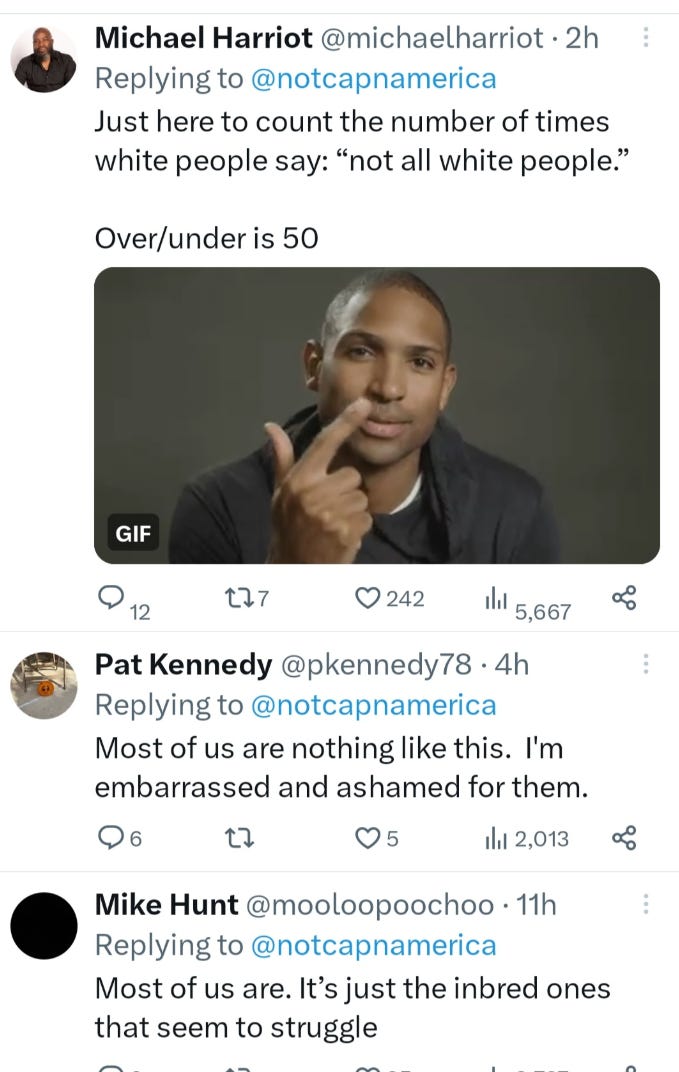
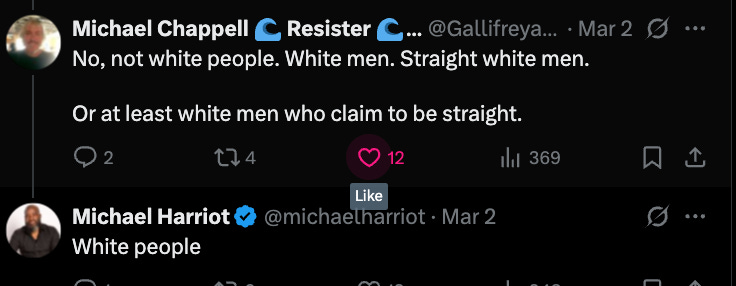
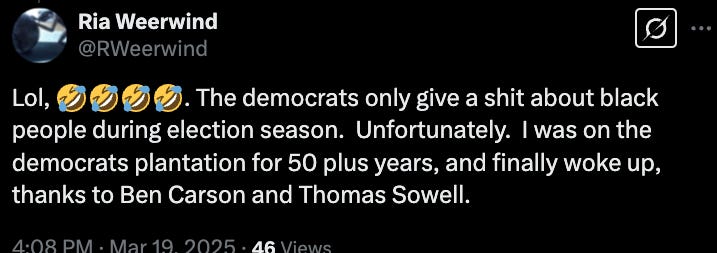
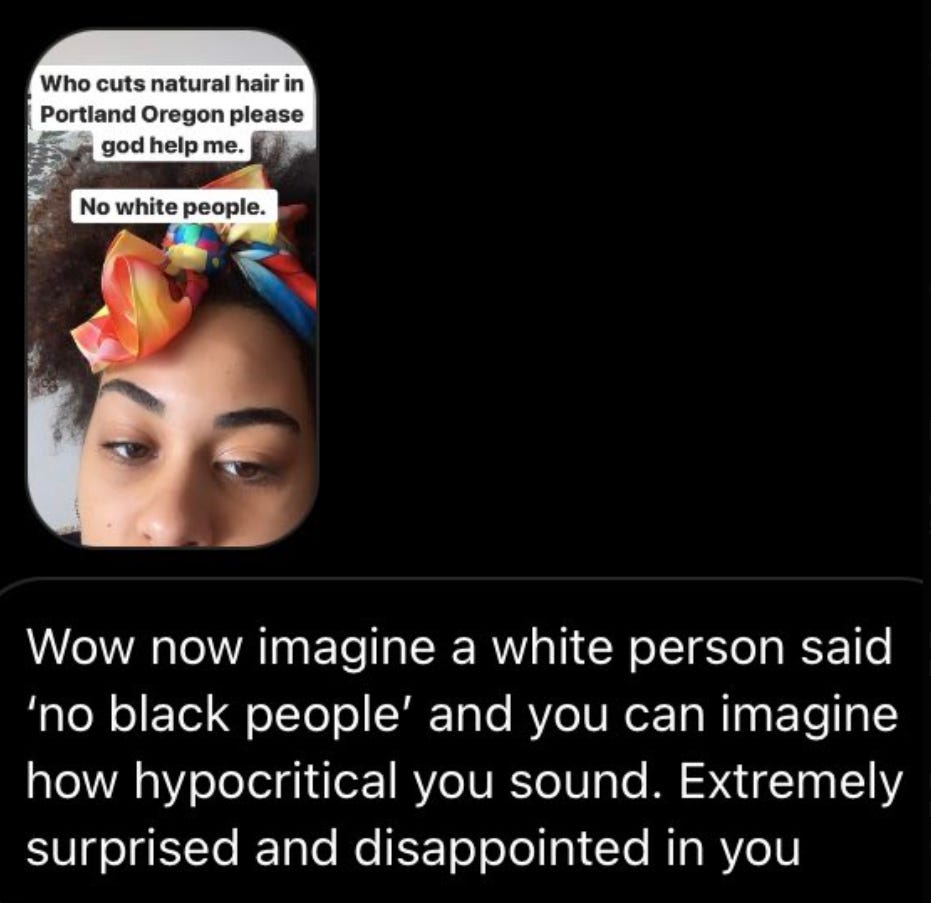
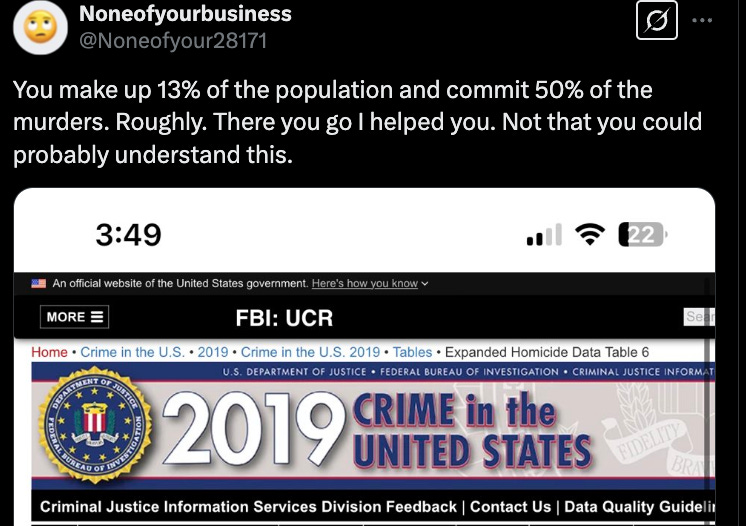

This will (sadly) always be timely.
It is very good to read your posts, educational for me. Hard though.